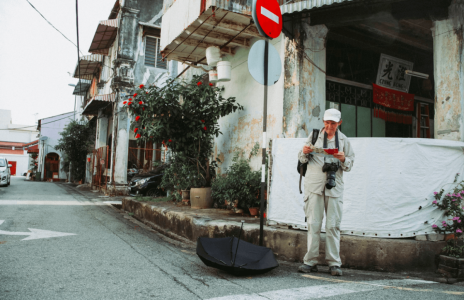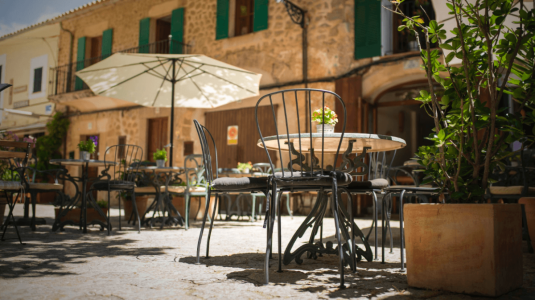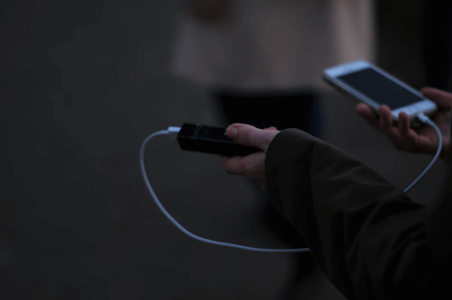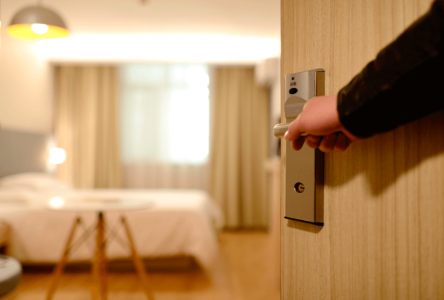How to stay safe on holiday - spot the 7 common travel scams before they spot you!
- Replies 3
Travelling is a wonderful way to explore the world, find adventure, and experience new things. But it also goes without saying that it's important to be vigilant, too.
There are a lot of scams out there that could leave you out of pocket if you're not careful.
And for those who will be on their first trip since the pandemic restrictions were lifted, you may not be as experienced or aware of some of the newest scams that are doing the rounds.
Here’s a list of some of the most common scams, so you know what to watch out for when you're travelling again.
Without further ado, here are the scams to look out for:

The holiday swindler
You'll often find them on social media sites like Instagram and Facebook, showcasing amazing snapshots of dreamy holiday destinations. Some of them would even offer free upgrades for those who book a tour.
As tempting as it might be to get a good deal, this 'travel agent' is usually a scam artist. They'll tell you that it's all booked, then ask for half of the payment up-front. After that, you'll turn up at the airport and find that your dream holiday isn't booked at all…
Two Euro scam in Spain
This is a common trick in Spain, where scammers will offer you what at first looks like a two Euro coin - gold colour in the middle with silver edges - but is actually a Turkish lira. Though alike, the two coins have very different values, so you'd be much worse off with the lira.

Fake USB ports
Often found in public areas such as shopping centres, festivals, and tourist spots, these USB ports are outfitted to look like legitimate charging stations.
However, if you plug your device into them, you may think you'd get a full battery, but it's actually a device designed to install malware, which can be used to steal your personal data.
It's much safer to bring along a portable charger or your own adapter so you can plug it directly into wall outlets.
Cash prize with Emirates
This seems to be popular through WhatsApp and emails. Someone will pretend to be giving away a huge cash prize from Emirates, asking you to open the link provided.
Of course, this is a sure way to have your personal information stolen. If you see these sorts of offers, delete them and make sure you don't open any links that come with them.

Dodgy accommodation
We live in a digital world, and more and more accommodation bookings are now being made through online sites like Booking.com and Airbnb. While these sites often make the process incredibly easy, they are also open to scammers.
To avoid getting scammed, do a thorough background check of the listing. You can:

'You spilled something'
This one is particularly common among busy cities and tourist spots. Basically, you're approached by someone pointing out that you have an 'accident'. Maybe there's something on your shoulder, or dollops of ketchup on your shirt, or ice cream on your shoe.
The point is, you'll be tricked into looking at the stain (which you're sure isn't even there), and then someone pickpockets you while you're distracted. So watch out while travelling – it's always better to be safe than sorry.
Broken taxi meters
This one's perhaps one of the oldest tricks in the book. Basically, taxi drivers take advantage of large queues in the airport or outside of popular venues to fraud customers out of their money.
More often than not, they'll claim their meters aren't working and charge you an outlandish sum – usually far more than what the journey should actually cost.
So, if you're ever in this situation, there's always one thing you can do: politely hop out and find someone else! Sometimes, a little insistence is all it takes to make them turn their meter on.

We wish you the best of luck with your travels, members! We hope the information here in this article will be of help to you, and may you be able to recognise these scams from a mile away. Please keep us updated on your travels - we would love to hear from you!
There are a lot of scams out there that could leave you out of pocket if you're not careful.
And for those who will be on their first trip since the pandemic restrictions were lifted, you may not be as experienced or aware of some of the newest scams that are doing the rounds.
Here’s a list of some of the most common scams, so you know what to watch out for when you're travelling again.
Without further ado, here are the scams to look out for:

Even though we'd all like to take it easy and relax on our getaways, it's best to always be on guard. Credit: Pexels/Nikita Belokhonov.
The holiday swindler
You'll often find them on social media sites like Instagram and Facebook, showcasing amazing snapshots of dreamy holiday destinations. Some of them would even offer free upgrades for those who book a tour.
As tempting as it might be to get a good deal, this 'travel agent' is usually a scam artist. They'll tell you that it's all booked, then ask for half of the payment up-front. After that, you'll turn up at the airport and find that your dream holiday isn't booked at all…
Two Euro scam in Spain
This is a common trick in Spain, where scammers will offer you what at first looks like a two Euro coin - gold colour in the middle with silver edges - but is actually a Turkish lira. Though alike, the two coins have very different values, so you'd be much worse off with the lira.

If someone offers you a two Euro coin, be wary; you can be getting ripped off. Credit: Pexels/Alex Staudinger.
Fake USB ports
Often found in public areas such as shopping centres, festivals, and tourist spots, these USB ports are outfitted to look like legitimate charging stations.
However, if you plug your device into them, you may think you'd get a full battery, but it's actually a device designed to install malware, which can be used to steal your personal data.
It's much safer to bring along a portable charger or your own adapter so you can plug it directly into wall outlets.
Cash prize with Emirates
This seems to be popular through WhatsApp and emails. Someone will pretend to be giving away a huge cash prize from Emirates, asking you to open the link provided.
Of course, this is a sure way to have your personal information stolen. If you see these sorts of offers, delete them and make sure you don't open any links that come with them.

If you need to charge your phone, don't rely on public charging stations; instead, pack your own portable external battery. Credit: Unsplash/Reka Sarudi.
Dodgy accommodation
We live in a digital world, and more and more accommodation bookings are now being made through online sites like Booking.com and Airbnb. While these sites often make the process incredibly easy, they are also open to scammers.
To avoid getting scammed, do a thorough background check of the listing. You can:
- Check if the reviews on the listing are sparse (a common sign of a fake listing)
- Check if there are plenty of photos provided
- Check if there's a description of the accommodation

Keep in touch with the owner and verify every piece of information to avoid falling for a fake listing. Credit: Pexels/Pixabay.
'You spilled something'
This one is particularly common among busy cities and tourist spots. Basically, you're approached by someone pointing out that you have an 'accident'. Maybe there's something on your shoulder, or dollops of ketchup on your shirt, or ice cream on your shoe.
The point is, you'll be tricked into looking at the stain (which you're sure isn't even there), and then someone pickpockets you while you're distracted. So watch out while travelling – it's always better to be safe than sorry.
Broken taxi meters
This one's perhaps one of the oldest tricks in the book. Basically, taxi drivers take advantage of large queues in the airport or outside of popular venues to fraud customers out of their money.
More often than not, they'll claim their meters aren't working and charge you an outlandish sum – usually far more than what the journey should actually cost.
So, if you're ever in this situation, there's always one thing you can do: politely hop out and find someone else! Sometimes, a little insistence is all it takes to make them turn their meter on.
Key Takeaways
- Be aware of social media and the use of fake travel agents to convince customers to buy a dream holiday.
- Be careful if you're being offered a two Euro coin.
- Be wary of using USB charging stations and opt for wall outlets when possible.
- Watch out for scams offering a cash prize from Emirates airlines.
- Be cautious of fake listings on accommodation sites.
- Be wary of people who offer to check for 'spills' on your clothing, as this is often a common pickpocketing technique.
- Be aware of taxi drivers who may try to overcharge passengers.







